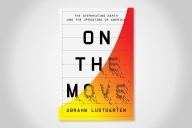You have /5 articles left.
Sign up for a free account or log in.
Do you Slack?
Has your team, department, group, division, organization, or school adopted Slack?
If you have no idea what Slack is - or have heard of Slack but never seen it action - I recommend investing 2 minutes and 37 seconds to watch the product tour.
(And in case you are wondering, Slack is now valued at $3.8 billion. All those venture capitalists can’t be wrong - right?).
What I’m hoping to get from you are some reasons why I should jump into Slack. I’m looking for those higher ed Slackers who can demolish my objections and soothe my worries.
3 reasons why I’m Slack skeptical:
#1 - A Prisoner’s Dilemma:
The big problem with Slack seems to be that for Slack to work for a team then it is necessary that everyone on the team to embrace Slack. If a single person does not drink the Slack Kool-Aid then the tool loses all effectiveness. There is a prisoner’s dilemma element to Slack. We would all be better off if we all went on Slack, but our individual investment is Slack is largely wasted if someone else chooses to abstain.
Mandated that team members Slack is a strategy doomed to failure. Only the internally motivated will persistently incorporate Slack into their workflow.
#2 - Distraction and Concentration:
Slack seems to work best if it is treated as a collaboration dashboard. A platform that is always running. A system to bridge the gap between asynchronous and real-time communications.
We all know, however, that the smart way to use email is to use email less. We are supposed to turn off email, only going into our email program at designated times. The reality is that none of us actually do this. We go to email all the time. But what many of us do is turn off email notifications.
Apparently, it is a bad idea to turn off Slack notifications. Notifications are essential to the flow of a dense Slack channel and a close Slack team. But I don’t want to see notifications. They break my concentration when I’m writing, reading, or just thinking.
#3 - Email Stockholm Syndrome:
I’ve been a prisoner of email for so long that I’ve come to embrace my captor. I have trouble imaging a world where my work is not ruled by email.
Replacing email as the main way that I organize my work feels akin to deciding to work in Mandarin. Yes, the world is moving in this direction (eventually), but does that mean that I need to be part of that change?
Email might be a terrible way for teams to collaborate and communicate, but it is my way. Email is so embedded in how I work that it no longer feels like a tool. Besides, why would I want to cleave off communications for one team (my team) into Slack - and leave the rest of work communications to email?
Please convince me of the errors of my thinking.
I want to love Slack, I just don’t (yet) know how.








